Brown’s betta - Betta brownorum
Scientific name: Betta brownorum
Common name: Brown’s betta
Family: Osphronemidae
Usual size in fish tanks: 5 - 6 cm (1.97 - 2.36 inch)
014
Recommended pH range: 4.5 - 6
Recommended water hardness: 0 - 8°N (0 - 142.86ppm)
0°C 32°F30°C 86°F
Recommended temperature range: 22 - 26 °C (71.6 - 78.8°F)
The way how these fish reproduce: Spawning
Where the species comes from: South Asia
Temperament to its own species: peaceful
Temperament toward other fish species: peaceful
Usual place in the tank: Middle levels
Food and Feeding
Betta brownorum, commonly known as Brown's Betta, is a carnivorous species that thrives on a diet rich in protein. While they can adapt to high-quality flake foods, they truly flourish when offered live or frozen foods. Ideal options include bloodworms, brine shrimp, and krill. These foods not only cater to their natural dietary preferences but also enhance their vibrant coloration. It’s best to feed them in small portions multiple times a day to ensure they receive proper nutrition without overfeeding. Occasional treats of live foods can stimulate their natural hunting instincts and keep them active and healthy.
Origin
Betta brownorum is native to Southeast Asia, specifically found in the slow-moving freshwater streams and peat swamps of Borneo, Indonesia. In their natural habitat, these fish inhabit soft, acidic waters that are often stained with tannins from decaying plant matter. The environment is typically densely vegetated, providing plenty of hiding spots and a sense of security for these shy and territorial fish.
Sexing
Sexing Betta brownorum can be done by observing their coloration and body size. Males typically display a more vibrant and intense coloration compared to the females. They also have longer and more elaborate fins. During the breeding season, the male's colors may become even more pronounced as part of their courtship display. Females tend to be slightly smaller and have shorter, less elaborate fins.
Breeding
Betta brownorum is unique among bettas as it exhibits two different breeding behaviors: bubble nesting and mouthbrooding. The choice of breeding method can vary, but it is not fully understood why they use one method over the other. To encourage spawning, it is often necessary to house two males with a single female, creating competition that can trigger the breeding process. However, care must be taken, as the dominant male may become aggressive toward the other male, who should be removed once spawning occurs to prevent injury.
If the male builds a bubble nest, the female will release her eggs, which the male will then fertilize and place into the nest. In the case of mouthbrooding, the male will take the fertilized eggs into his mouth to protect them until they hatch. The incubation period for mouthbrooding typically lasts around 10-14 days, after which the male will release the free-swimming fry. In either case, the water conditions should be kept warm, soft, and acidic to mimic their natural habitat and encourage successful breeding.
Lifespan
The expected lifespan of Betta brownorum is 3-5 years with proper care. Maintaining optimal water conditions, a well-balanced diet, and a stress-free environment are key factors in ensuring they live a full and healthy life.
Short Description
Betta brownorum is a small, colorful betta species that thrives in a well-planted aquarium with plenty of hiding places and caves. A pair can comfortably live in a 5-gallon tank, but if you plan to keep a group, a larger setup of at least 20 gallons is recommended. They require soft, acidic water with a pH between 4.5 and 6.0 and a temperature range of 22-26 °C (71.6-78.8 °F). Good filtration is essential, but it should be gentle, as strong currents can stress these delicate fish. They are relatively peaceful but can become territorial during breeding, so providing ample space and hiding spots is crucial for their well-being.
Picture
Bought by aqua-fish.net from jjphoto.dk.
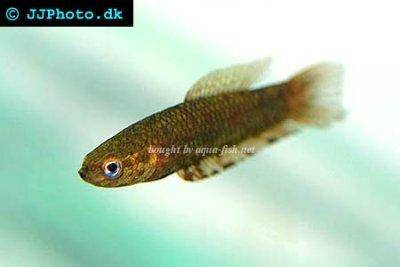

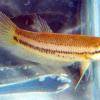 Akar
Akar 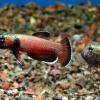 Whiteseam
Whiteseam 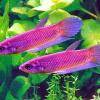 Giant
Giant 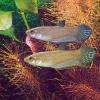 Betta
Betta 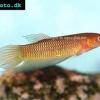 Slender
Slender 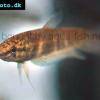 Betta
Betta 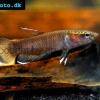 Snakehead
Snakehead 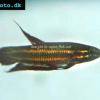 Wine
Wine 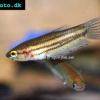 Edith’s
Edith’s 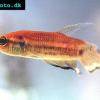 Blue
Blue 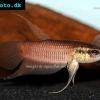 Betta
Betta 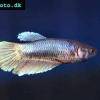 Peaceful
Peaceful 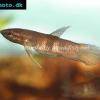 Kapaus
Kapaus 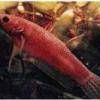 Eyespot
Eyespot 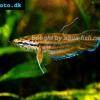 Spotted
Spotted 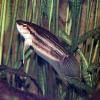 Forest
Forest 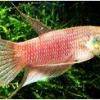 Schaller’s
Schaller’s 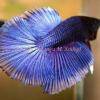 Siamese
Siamese 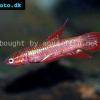 Chukai
Chukai 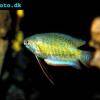 Banded
Banded 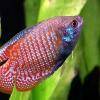 Dwarf
Dwarf 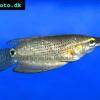 Frail
Frail 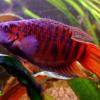 Paradise
Paradise 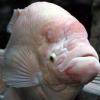 Giant
Giant 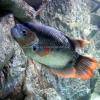 Giant
Giant 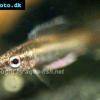 Licorice
Licorice 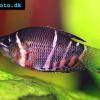 Chocolate
Chocolate 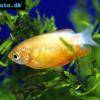 Honey
Honey 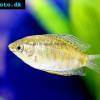 Thick
Thick 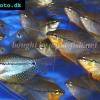 Pearl
Pearl 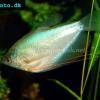 Moonlight
Moonlight 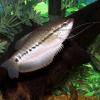 Snakeskin
Snakeskin 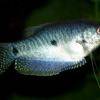 Blue
Blue